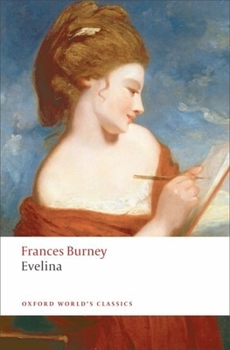Evelina
Select Format
Select Condition 
Book Overview
Frances Burney's first and most enduringly popular novel is a vivid, satirical, and seductive account of the pleasures and dangers of fashionable life in late eighteenth-century London. As she describes her heroine's entry into society, womanhood and, inevitably, love, Burney exposes the vulnerability of female innocence in an image-conscious and often cruel world where social snobbery and sexual aggression are played out in the public arenas of pleasure-gardens,...
Related Subjects
Classics Fiction History Humanities Literary Literature Literature & Fiction RomanceCustomer Reviews
Beautifully Classic
Still Fresh, Relevant, and Thoroughly Enjoyable
Delightful and Insightful
Why Didn't I Find This Book Sooner?!
Evelina
Evelina, or, The History of a Young Lady's Entrance into the World Mentions in Our Blog

In 1891, a young artist named Aubrey Beardsley walked into London bookseller Frederick Evans' shop and met J.M. Dent, then a new relatively new publisher. The book dealer and publisher were engaged in a conversation about Sir Thomas Malory's Morte Darthur which at the time was undergoing a renewed popularity...






